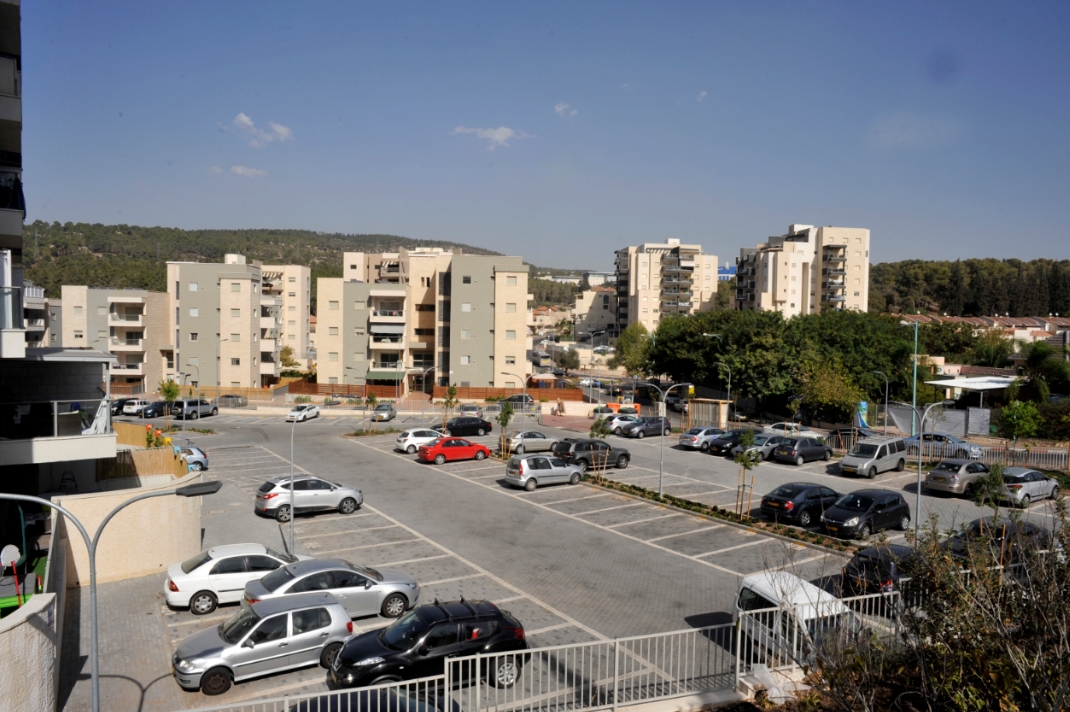Finding a Higher Insurance: Transforming My Car into a Communal Gemach
Elhanan Khalifa bought a new car but decided to keep his old one to serve as a *gemach* for the community. Since then, two more cars have joined this initiative with hopes of expanding it nationwide. How does the *gemach* system work? A heartwarming initiative.
 (Illustration image: shutterstock)
(Illustration image: shutterstock)If you open a phone book in Bnei Brak or Jerusalem and look for lists of gemachs, you will undoubtedly find thousands of different gemachs spread throughout the ultra-Orthodox neighborhoods, offering anything you could dream of—from pacifiers to various sums of money and even gemachs for disposable utensils, stationery, and lost children.
But a gemach like the one Elhanan Khalifa from Migdal HaEmek offers is unique, warming the heart when you hear about it. It's a car gemach that serves the local scholars, providing an amazing solution for those without a car of their own.
A Gemach That is Insurance
"The idea for the gemach came to me over ten years ago when I bought my first car," Khalifa says. "I once heard in the name of the Steipler that, in our generation, since roads are inherently dangerous and a car is very dangerous, the best insurance is to use it for good deeds. I adopted this method, wanting to insure my car with spiritual and real insurance. Initially, I tried lending my car when I didn't need it to anyone who did. I always lent it happily and never worried, as my cars were always simple and inexpensive, so a scratch or a dent didn't stress me out.
"Over time, my family grew, thank Hashem, and we needed a larger car, so I bought a new one and naturally kept the small old one to serve as a car gemach in Migdal HaEmek. Now, anyone in the area can use the car, if it's available, for a symbolic fee. Of course, I don't profit from it; all the money goes for the car's maintenance."

What is the symbolic fee?
"I calculated that car expenses are generally divided into four factors—the main one being fuel, followed by maintenance, insurance, registration, and depreciation. After considering all these parameters, I concluded that a cost of one shekel and 20 agorot per kilometer covers everything I mentioned. Additionally, each trip leaves a small amount that will accumulate over time. In a few years, when the car can no longer be used, there will be about 10,000 shekels left for purchasing a new car for the gemach."
It sounds great, but you are a scholar. How do you find time to manage the gemach?
"That's just it," he replies with a smile. "The gemach runs very simply. As I already mentioned, the car isn't luxurious and not very tempting to thieves, so I'm not worried about theft. I explain to everyone that they don't need to lock the car, they can leave it open. Many keys have been duplicated and are circulating among the community members. Whoever needs the car simply enters and takes it, just updating everyone... Sometimes the key is even left inside the car."
A Miracle on the Road
The gemach car in Migdal HaEmek has already reached almost all parts of the country, covering vast distances, even going on off-road trips. "There's a joke that asks, 'What is the only thing that can pass through a path that even a scooter can't?' and the answer is 'a rented car'. Well, our gemach came and updated the joke—it's capable of passing through paths that even a rented car cannot."
Khalifa also notes that thanks to the gemach, they have experienced many instances of unique divine providence. He gives an example of one: "One scholar once drove his wife who was about to give birth on Shabbat, parking the car in the parking lot of the Emek Hospital in Afula. Just then, he met another scholar who had arrived with his son during Shabbat and had no way to return home after Shabbat. He felt the car was sent to him from the heavens..."
"There was also a time when the car was saved from a certain accident. I took it for maintenance outside the city, and on the way, near the Yishai junction, the car just started spinning. I pulled one way, and the steering pulled the other way. It crossed lanes and hit the guardrail, but other than the broken lights, nothing happened. Even my son continued sleeping in the back seat without feeling a thing."
A Lifesaver for Families
But the car gemach didn't remain only in Migdal HaEmek. Due to its great success, Khalifa managed to gather more tithe money and purchased another car for 10,000 shekels for the ultra-Orthodox community in Afula, where the car gemach operates similarly. Another car was recently purchased for the ultra-Orthodox community in Nazareth Illit.
"It's a tremendous satisfaction to see the cars in use almost every hour of the day," he shares. "What makes me happiest is traveling outside the city and suddenly spotting one of the gemach cars driving in the opposite lane. Thank Hashem, the cars are in use for almost 12 hours a day. You have to understand—in the big cities in the country, it's possible to rent a car by the hour through various rental companies, but this hasn’t reached the periphery yet, and there are many people who occasionally need a car for an hour or two but won't rent it for an entire day. There are also dozens of families who don't have a car at all, and it's a lifesaver for them."
Do you recommend setting up such a gemach in other cities?
"Absolutely. I highly recommend it, but of course, you must not buy too expensive a car as it might create too much stress about potential damage. It's also wise to think in advance about how to manage the gemach, ensuring there is a proper registry, making clear how much exactly someone should pay and how calculations are made. Of course, every trip must reset the kilometers to know exactly how far was traveled, and most importantly—recite a prayer for safe travel to ensure we all travel and return safely."

